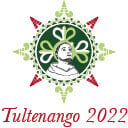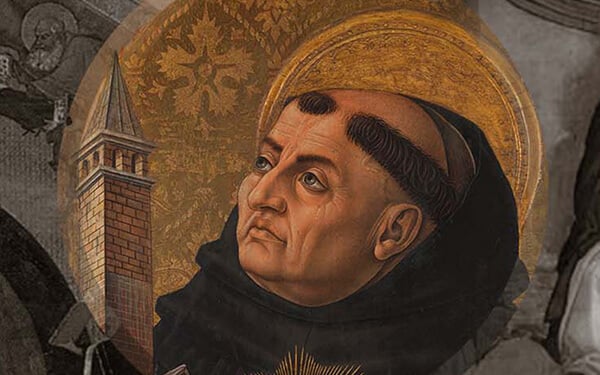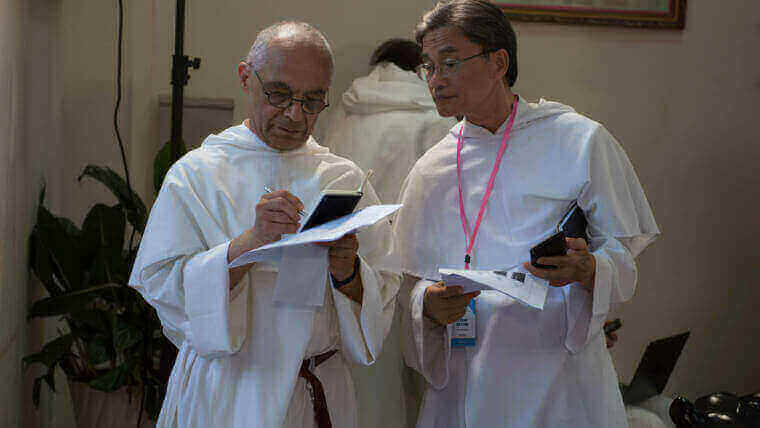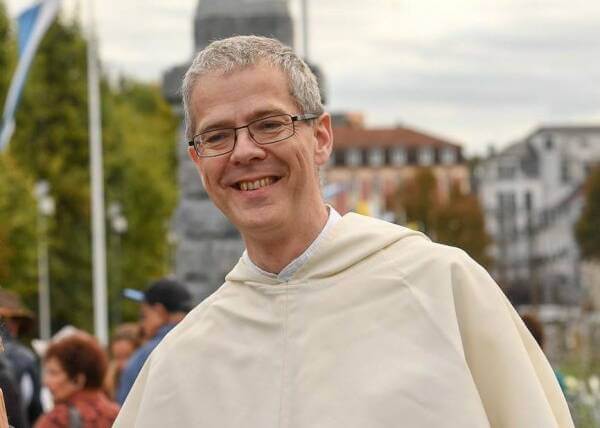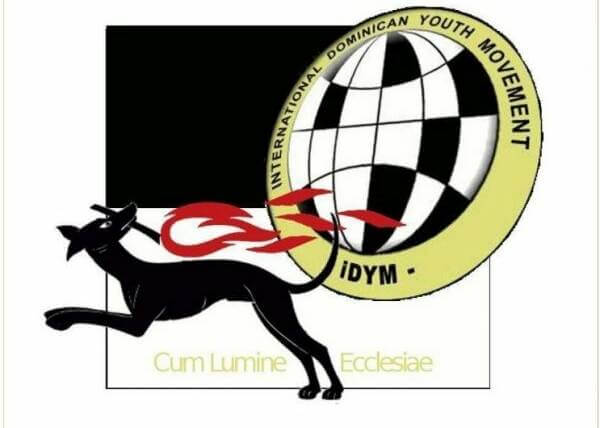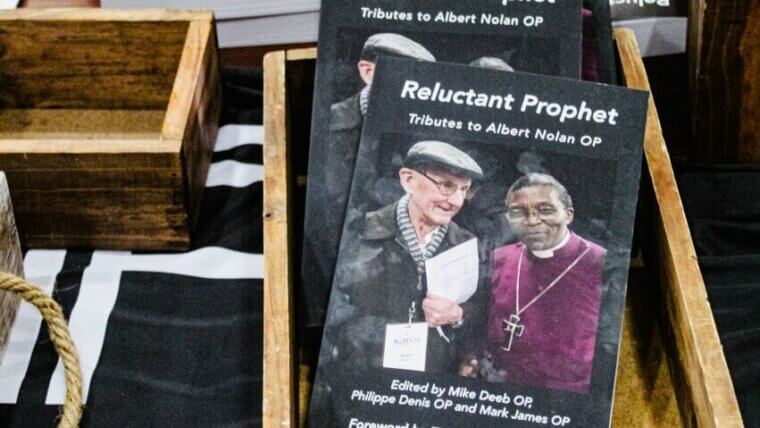
About the 7th Centenary of the Canonisation of Thomas Aquinas
Whether it is true that, as Pope Pius XI said of St. Thomas Aquinas in a speech in 1923, that he was ‘the most learned among saints and the holiest among scholars’, is an open question. Thomas Aquinas is undoubtedly one of the most important figures in intellectual history and, at the same time, a person who lived his vocation as a Christian, a religious and a theologian in a very consistent and compelling manner. On 18 July 2023 we will mark the seventh centenary of his canonisation, and next year will commemorate his death, which took place on 7 March 1274 at Fossanova. Celebrations are already planned for the 800th anniversary of his birth, although the exact date is unknown: probably sometime in 1225 or 1226. This triple anniversary, and especially that of his the canonisation by Pope John XXII (1316-1334) on 18 July 1323 in Avignon, gives us reason to reflect on the significance of St Thomas.
Although veneration of Brother Thomas began shortly after his death, his elevation to the altar was not without obstacles. Although he was not mentioned by name, the condemnation of the 219 Theses by the Bishop of Paris, Stephen Tempier, in 1277, (three years after Thomas’s death) called the work of Master Thomas into question. There followed years of heated controversy over his philosophical and theological legacy. The Order of Preachers defended its famous master against his adversaries and promoted his memory and teaching. Thomistic doctrine was only officially rehabilitated by the Church, however, a year and a half after his canonisation in 1325 by another bishop of Paris, Stephen Bouret.
It cannot be denied that, despite his reputation for holiness, there were also political motives behind the canonisation. Both the Neapolitan king Robert of Anjou (1309-1343), who found in the work of Thomas an ideological support for his government, and the Pope himself benefited from the authority of the new saint. Pope John XXII, in particular, made use of his writings when confronting renegade Franciscans in the dispute over poverty and evangelical perfection, in order to secure his theological position against the radicalism of the Friars Minor. In a sermon delivered a few days before his canonisation, the Pope explicitly praised the saint’s life in the Order of Preachers, in which private property was not permitted, but property was held in common.
Indeed, apostolic poverty had an important, even central significance for Thomas. The Dominican theologian Ulrich Horst has convincingly demonstrated that the mendicant lifestyle was one of the essential motivations that drove Thomas to resist his family’s plans to make him abbot of the powerful abbey of Monte Cassino. Instead, he entered the new Order of Preachers in 1244 to follow the ‘poor preaching Christ’ (pauper Christus praedicans). However, he did not equate evangelical perfection with a life of extreme poverty, but declared that perfection consisted essentially in charity. The Franciscans in 1323 quickly realised that the canonisation of Thomas also contained a clear criticism of their idea of absolute poverty as the pinnacle of Christian perfection. From 14th century sources, we learn that, even after Thomas’ canonisation, there were several critics who considered him a heretic.
St. Thomas was thus used as a tool in ecclesiological controversies and, later, as an authority in the fight against dissenters – sometimes problematically. In his academic career, Thomas had certainly not avoided disputes on the most diverse topics and had often taken a clear stand against opinions he perceived as contradictory to the truth. If we focus, however, this polemical and apologetic aspect of Thomas’ work and perceives him above all as a guardian of the limits of theological pursuit and a fighter of heresies, we disregard his genius and the goal of his life. He would probably have been deeply surprised to be seen as an icon of a ‘Catholic counterculture’. We must first consider Thomas in his historical and cultural context, as Pope Francis reminded the participants of the International Thomistic Congress of 2022. This approach starts ‘from the beginning’ and makes evident the originality and the modernity of the saint, while also recognising his limitations.
Who, then, was St Thomas? Above all he was a man who dedicated his entire life to the search for God, a search characterised by the interaction of reason and faith. In God, he recognised the goal of his deeply human desire for happiness. He learned to love Jesus Christ, whom he wanted to follow and whom he wanted to resemble, in the concrete life he had known with the Preaching Friars in Naples and in the conditions of daily life as a theology teacher in the Order of Preachers. Thomas, while aware of his abilities, did not consider himself the centre of the world. Rather, he placed himself at the service of the universal Church with the Pope as supreme pastor and at the disposal of the work of the Order. Herein he found the mission of his life: to be an instrument of the divine plan of salvation for all men. For the Dominican and Thomistic scholar Jean-Pierre Torrell, this attitude is one of the fundamental characteristics of theologians, as he explained in a contribution on theology and holiness. Thomas Aquinas was a man in whom doctrine and life coincided in an extraordinary way, or as Pope Paul VI has said, Thomas was not only a teacher but also a witness to the Gospel (cf. Evangelii nuntiandi, 41).
This is demonstrated by Thomas’s own life and work. In the Summa Theologiae (I-II, q. 68, a. 1), he teaches that Jesus calls people to humility, meekness and charity, which are particular characteristics that lead to conformity with Him. In the Secunda Secundae (II-II, q. 161, a. 3), Thomas emphasises humility as an attitude first and foremost towards God, but adds that we must also be humble towards men, in view of the gifts of God found in them. This was for Thomas not just a doctrine to be taught. He took Christ’s invitation to follow him in humility and meekness very seriously, as was testified to several times during the canonisation process. According to the research of Andrea Tilatti and other historians, the Neapolitan jurist Bartolomeo da Capua, logoteta of King Robert, supported Thomas’s canonisation by the following testimony. As a witness in the hearing held in Naples in 1319, he stated that Thomas had always met the Franciscan scholar and later Archbishop of Canterbury John Peckham with meekness and humility, despite the latter’s fierce opposition to him on central questions of doctrine. Although their disagreement was in the academic sphere, presumably Thomas considered him not only as a theological opponent, but also as a brother in the mendicant orders, a friend. Thus, we may well say that the Church, in need of a healthy (theological) culture of debate, can still learn a lot from Thomas.
In the aforementioned article on theology and holiness, Jean-Pierre Torrell emphasises that theologians must not be content with guarding the deposit of faith, but that it is their task to show how the faith that has been handed down can be lived today. This undoubtedly requires careful listening, first to the faith handed down by the Church and then to the questions and needs of the people of the time; but it also requires intelligent creativity: in St Thomas we find both qualities. As we know, in the course of history some of those who followed Master Thomas in his dialectical and creative approach to theology were rebuked in the name of the ‘traditional’ Thomas, a fact that of course cannot be blamed on the saint himself. On the contrary, he represents a living tradition of tireless search for God, of committed and rigorous philosophical and theological research, and of teaching oriented towards the salvation of human beings. It is an honour, of which I am truly proud, to be a confrere of St Thomas, brother and teacher.
Br. Viliam Štefan Dóci, OP
President of the Historical Institute of the Order of Preachers
Published by L’Osservatore Romano, edition of 19 July 2023, p. 10. (Frate predicatore, maestro, santo. A proposito del VII centenario della canonizzazione di Tommaso d’Aquino)

